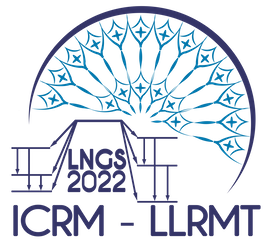Speaker
Description
There are two major underground experiments in Korea, AMoRE and COSINE, searching for neutrinoless double beta decay and WIMP (Weakly Interacting Massive Particle) type dark matter respectively. The Advanced Molybdenum based Rare process Experiment (AMoRE) is searching for the neutrinoless double beta (0νββ) decay of $^{100}$Mo isotopes in molybdate crystals using high-resolution cryogenic detectors in milli-kelvin temperatures.
The AMoRE phase-II (AMoRE-II) is going to have ~100 kg of $^{100}$Mo isotopes in crystals to study the 0νββ decay in the inverted mass hierarchy region of neutrino mass. Various molybdate crystals such as $^{48dep}$Ca$^{100}$MoO$_{4}$, Li$_{2}$$^{100}$MoO$_{4}$, Na$_{2}$Mo$_{2}$O$_{7}$, and PbMoO$_{4}$ for the AMoRE-II have grown and tested for their performances including background radiation levels. For the COSINE experiment, a mass-volume ultra-radio-pure NaI(Tl) crystal growth are currently under development at the Center for Underground Physics (CUP) of the Institute for Basic Science (IBS) in Korea. Both experiments require quite challenging low background levels in the crystals being developed.
There are number of radioassay devices in the CUP to measure radiation levels in all steps of crystal development. The argon gas ionization alpha counter and HPGe detectors are running at Yangyang underground laboratory which is located underground with ~700 m overburden to increase their sensitivities by reducing cosmic radiation background. An ICP-MS machine is at IBS-HQ where the purification and crystal growing R&D are taking place.
A review on the production of the ultra-low background crystals together with their extremely low background radiation measurements is going to be presented.

